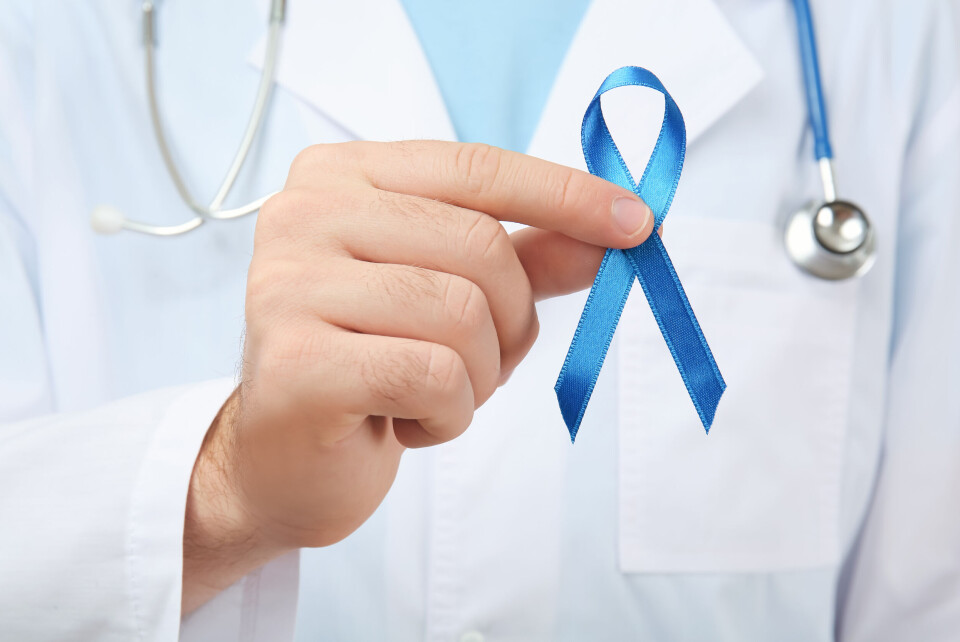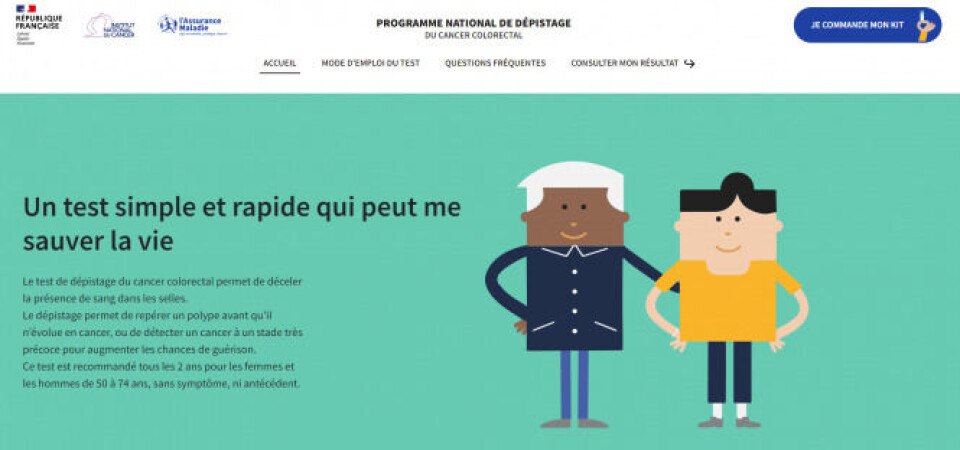-
Home insurance increases expected in France after floods
Compensation costs for the recent storms and flooding across the west and south-west is estimated to be in the billions of euros
-
La Voie Bleue: European Cycle Route of the Year is in France
700km bike path linking Luxembourg and Lyon has been crowned winner of the 2026 title
-
MAP: See how your location in France affects online food shop prices
New analysis shows how your shop compares on average
Colorectal cancer tests now available free at home in France
People aged 50-74 can order the tests online for home delivery every two years. The cancer causes 17,000 deaths per year but has a 90% survival rate when caught early

People aged 50-74 in France can now order a free at-home test kit for colorectal cancer. The cancer causes more than 17,000 deaths per year in France and affects mainly people aged over 50.
The kit can be ordered online and sent directly to your home for free, once every two years.
There are more than 43,000 diagnoses of the cancer every year in France, and 17,000 deaths, but too few people in the 50-74 age group currently get a regular test that could detect it.
In 2019-2020, less than a third (28.9%) of the eligible population had a test.
This is despite the cancer having a 90% rate of survival when caught early. If caught at a later stage, the treatment is more difficult and the survival rate is lower.

Image: Monkit.depistage-colorectal.fr / Screenshot
Who can receive a free test?
The national programme is available to all men and women aged 50-74, who do not have symptoms and who have no previous history of colon or rectal illnesses.
Every two years, these people will receive a letter from l’Assurance Maladie inviting them to order a free test online, and have it sent to their home. It is completely free.
What does the test do?
It seeks to identify if there is any blood hidden in the tester’s faeces. If any blood is detected, a colonoscopy will be scheduled.
Health authority l’Assurance maladie explains on its website: “It can diagnose colorectal cancer at an early stage, or even prevent cancer by avoiding polyps or adenomas before they develop into cancerous lesions. They will be removed during the colonoscopy.”
How can you get hold of a test?
From March 1, they are available to order one online via the website Monkit.depistage-colorectal.fr.
You can also get one from your doctor, gynaecologist, hepato-gastroenterologist, and soon from your local pharmacist.
When ordering online, you will need:
-
Your Assurance maladie invitation letter. This includes a personal invitation number, which is essential for ordering. If the letter has been lost, the number can be requested by contacting the regional cancer screening coordination centre (contact details are available on the E-cancer.fr website)
-
To answer a medical questionnaire. This ensures that the test is suitable.
-
To fill in your postal address and your doctor’s details.
The screening kit will then be sent directly to your home within 15 working days.
How do you do the test?
The test comes with detailed and illustrated instructions. There is also a how-to guide on the Monkit.depistage-colorectal.fr website, with subtitles and sign language.
Once you have done the test, you will need to place it as instructed into the pre-paid envelope that comes with the kit and send it to the listed analysis laboratory within the next 24 hours.
How long does it take to get results?
Results are normally available:
-
Online within three days of sending the test, by creating an account on the website Resultat-depistage.fr.
-
By post within 15 days of sending the test.
There are currently three national screening programmes in place in France: breast cancer, colon (colorectal) cancer, and cervical cancer.
Read more:World Cancer Day: France encourages three regular cancer screenings
On this year's World Cancer Day (February 4), which seeks to raise awareness of testing and cancer prevention, Professor Norbert Ifrah, president of national cancer institute l'Institut national du cancer (INCa) explained that these three cancers are currently screened because “they meet three criteria”.
He said: “The tests are able to make a diagnosis, they are not too invasive, and, when [the cancer is] detected early, effective treatments exist and can make a difference.”
Related articles
France looks to offer routine lung cancer screening to at-risk groups
'Identifying those at risk of cancer before they fall ill is key aim'
























